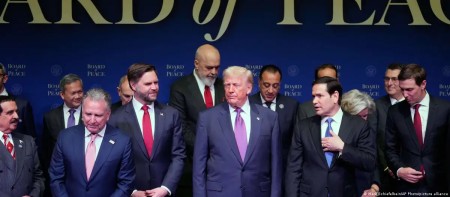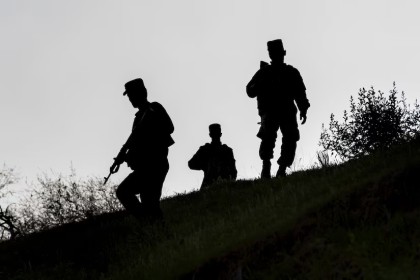Germany launched the Green Central Asia project, a regional climate and security initiative in Central Asia and Afghanistan. The project aims to strengthen cooperation in the region as well as the exchange between policy-makers, academia and civil society.
In addition to the German Foreign Minister, Heiko Maas, who was hosting the event, colleagues from Afghanistan, Kazakhstan, Kyrgyzstan, Turkmenistan, Tajikistan, Uzbekistan and the EU High Representative for Foreign Affairs and Security Policy, Josep Borrell took part in the conference. A joint declaration on cooperation in the field of climate and security was signed.
The initiative aims to create wider access to information and promote academic cooperation between the six participating countries over the next four years. Green Central Asia will contribute to the implementation of the new EU Central Asia strategy adopted in June last year.
In his remarks, the Uzbek Foreign Minister, Abdulaziz Kamilov, spoke about the existing and potential threats posed by global climate change for the Central Asia, as well as measures taken in the country to rationalize the use of water resources, the introduction of energy-saving and environmental technologies.
Josep Borrell noted that the EU adopted the European Green Deal – for Europe’s economy and society to become climate-neutral by 2050, a new strategy for economic growth, in which people give to nature more than they take.
“But today the EU represents 9% of global CO2 emissions, and this figure is declining. At the same time, 20 non-EU countries (G20) contribute 70% of emissions, and this number is growing. Therefore, collective action is needed,” he said.
He emphasized that climate change severely hit Central Asia: “Over the past 30 years there has been a sharp increase in temperatures. Droughts and lack of water have destroyed entire ecosystems. The reduction of glaciers has led to a reduction in water flows, which may increase competition for water resources.”
Josep Borrell added that the EU expects to launch a new project at the end of this year, which aims to strengthen the capacity of Uzbekistan, Kyrgyzstan and Tajikistan to respond to the effects of climate change on security in the Ferghana Valley.
“The EU is very active in resolving the serious problems associated with the legacy of uranium mining. Floods and landslides are becoming more frequent due to climate change. If nothing is done, they will lead to a catastrophic spread of toxic and radioactive waste from the remaining uranium objects into the transboundary rivers of the region. This can lead to an extremely serious natural disaster, ”said the head of EU diplomacy.
The German Foreign Minister, Heiko Maas in his remarks noted that “if climate change knows no boundaries, then our response to it must also not know boundaries”: “The approach - My country comes first is not sustainable. Then in the end it means only that everyone is against everyone.”















